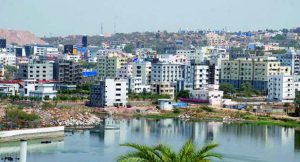
Mayur Vihar is one of the posh areas in East Delhi, located on the Delhi-Noida border. The area has always been the homebuyers’ choice due to grand Returns on Investment (ROI), robust connectivity, and mixed residential choice. Propertywala brings the factors why you should invest in Mayur Vihar, Delhi.
Overview of Mayur Vihar, Delhi:
Mayur Vihar is a lavish residential hub, which splits into phases, namely, Phases 1, 2, and 3. The site is close to a sanctuary devoted to peacock conservation in East Delhi. Hence, the name Mayur (peacock) Vihar (dwelling). The development of the area dates back to the late 1970s when the government decided to sell the Delhi Development Authority (DDA) flats to Public Service Units (PSUs) and semi-PSUs such as Bharat Heavy Electricals Limited (BHEL). It was done as an experiment to combine the people of several income groups into one community. Nowadays, different phases in the Mayur Vihar house vary in statistics.
It is also well-connected via public transport and social and civic infrastructure. It has a metro station on the Blue Line of the Delhi Metro. Many government buses also ply. It will be a good decision for residents to invest in minimum price in Mayur Vihar with all the amenities and infrastructure.
The real estate market in Mayur Vihar:
The locality of Mayur Vihar is divided into three phases with different real estate statistics.
Phase 1 ranks at the top: Based on its popularity and is considered the poshest of the three. It is a premium real estate market influenced by 2 BHK residential apartments with average prices. The range of price is between Rs 90 lakh to 1.5 crores. The average price per sq. ft. in the area is over Rs 11,000. A few residential options in Mayur Vihar are builder floors, DDA flats, and cooperative housing societies in Mayur Vihar Phase 1.
Mayur Vihar Phase 2 : It is fairly preferred by investors. It may be helpful for many affordable projects because buyers can get a 2 BHK residential area for as low as Rs 40 lakh up to Rs 1.6 crore.
Mayur Vihar Phase 3: The locality offers enough standalone flats and houses. However, the residential market in phase 3 is slightly less preferred as compared to the other two phases. The locality is majorly famous for its commercial institutions. Get 2 BHKs in this locality between Rs 50 lakh and 1 crore. The per sq. ft. rate of the residential list in Mayur Vihar Phase-3 averages Rs 7,550. Ample flats under the Central and State (DDA) Government’s Housing Schemes are purchasable here.
Inventory share across budget:
| Area Name | Rs 0-50 lakh | Rs 50 lakh to 1 crore | Rs 1 – 1.5 crore | Rs 1.5 to 2 crore | More than Rs 2 crore |
| Mayur Vihar-1 | 13% | 18% | 38% | 18% | 12% |
| Mayur Vihar-2 | 2% | 42% | 33% | 13% | 10% |
| Mayur Vihar-3 | 40% | 48% | 10% | 1% | 0% |
Work Area of Mayur Vihar:
Connectivity to work areas is one of the remarkable factors driving the resident and buyer demand in Mayur Vihar. Since the locality borders Noida, the industrial area is around 10 km from Mayur Vihar. Further, the appearance of many technology organizations in Noida, like IBM, TCS, and Genpact, also remains a big point for the residents. People working in cities such as Gurgaon. They also have their house here as the area’s active metro services. It connects it to Gurgaon’s employment hubs via the Pink and Blue lines of the Delhi Metro.
Social amenities and Infrastructure:
In addition, Mayur Vihar is maintained by the New Delhi Municipal Corporation (NDMC), which has worked highly on improving its social and physical infrastructure. So, the given table highlights the infrastructure amenities in Mayur Vihar:
Mayur Vihar is maintained by the New Delhi Municipal Corporation (NDMC), which has worked highly on improving its social and physical infrastructure. The given table highlights the infrastructure amenities in Mayur Vihar:
| Amenities | Phase 1 | Phase 2 | Phase 3 |
| Hospitals | Kukreja Hospital, Manglam Hospital, Apex Citi Hospital | Lal Bahadur Shastri Hospital, and Apex Citi Hospital | Metro Multispeciality Hospital, and ESIC Model Hospital |
| Metro Connectivity | Mayur Vihar Phase 1 metro station connects the Blue and Pink Line | East Vinod Nagar metro station connects to the pink line | Trilokpuri-Sanjay Lake metro station connects to the pink line |
| Road connectivity | Noida Link Road, Delhi-Meerut Expressway and DND Flyway | NH-24 connects for easy access to Noida and Greater Noida | In close to NH-24 |
| Schools | Ahlcon Public School, ASN International School, and Rishabh Public School | Bal Bhavan Public School, and Mayur Public School | Ryan International School, Somerville School, and Bharti Public School |
| Places of Interest | Akshardham Temple, Uttara Guruvayurappan Temple | Sanjay Lake, Neelam Mata Mandir | Akshardham Temple, Sanjay Lake |
| Retail Hubs | Galleria Mall, Star City Mall and the DDA Market | Pacific Mall, East Centre Mall And Cross River Mall | Gharoli Market, Pacific Mall and East Delhi Mall |
Investment Possibilities:
The property rates in the Mayur Vihar have been stable despite the pandemic. Further, the lifted rental demand keeps it popular among investors. The minimum rent for a 2 BHK semi-furnished residential apartment in several phases of Mayur Vihar is in the following ways:
| Phase 1 | Phase 2 | Phase 3 |
| Rs 24,000 per month | Rs 18,000 per month | Rs 13,000 per month |
At last, the strategic development of the area, balanced returns on investment, and impressive realty choices allow various income groups to invest in Mayur Vihar. All of the above factors make it a promising investment option for buyers who are looking to settle between a calm and green environment and a developed infrastructure.





